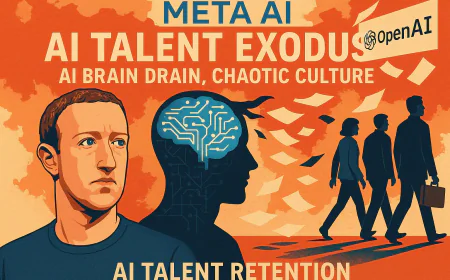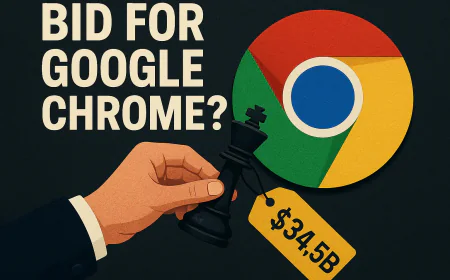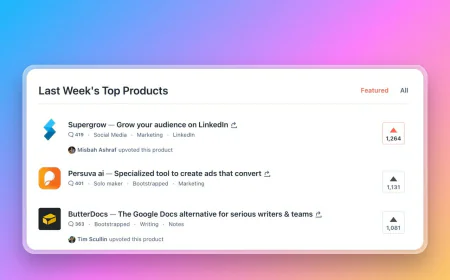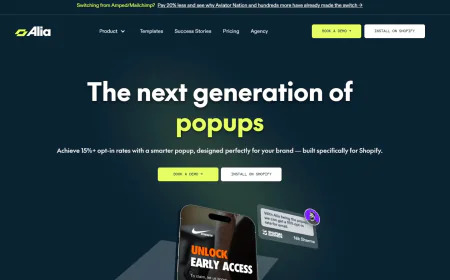Perplexity’s $34.5 Billion Bid for Google Chrome Bold Antitrust Gamble or PR Stunt?
AI startup Perplexity’s bold $34.5 billion bid to buy Google’s Chrome browser has stunned the tech industry. The offer comes amid Google’s antitrust battle, but experts doubt the sale will happen.
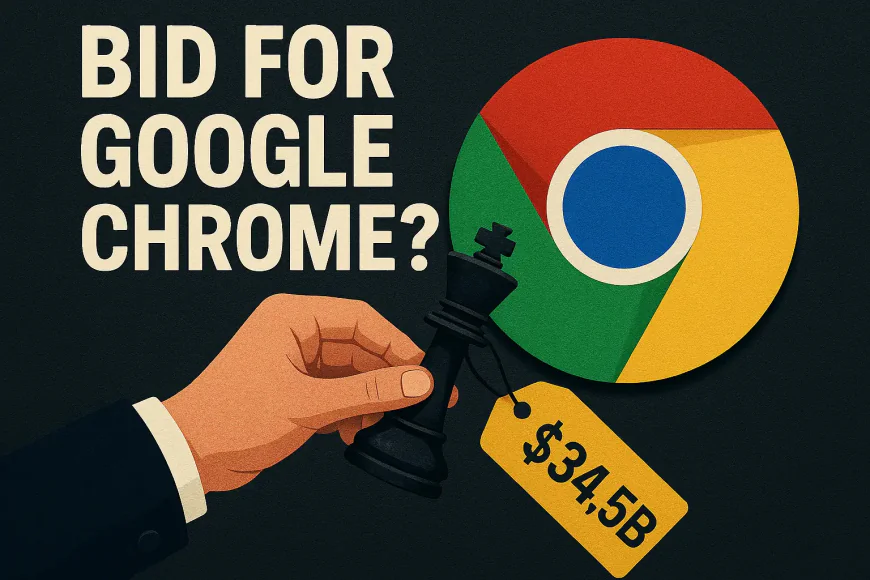
Bold Antitrust Gamble or PR Stunt?
Perplexity’s Bold Offer to Acquire Chrome
On August 12, 2025, AI search startup
In its proposal, Perplexity framed the acquisition as a remedy to ongoing antitrust concerns, aiming to position Chrome with an independent operator focused on openness and user interests[1]. The company’s letter pledged not to disrupt users’ browsing experience – notably promising to keep Google as Chrome’s default search engine (users would remain free to change it)[2]. Perplexity’s CEO affirmed that the offer would advance the “highest public interest” by addressing competition issues in search[1]. Despite the unprecedented bid, however, Google’s parent company Alphabet has not indicated any willingness to sell Chrome and has consistently resisted any proposal to spin off or divest the browser[1]. Google did not publicly comment on the offer, which highlights how unexpected Perplexity’s overture is in the tech industry.
An Antitrust Showdown Puts Chrome in the Spotlight
The daring bid comes against the backdrop of a high-stakes antitrust showdown between Google and U.S. regulators, which is precisely what makes Chrome a subject of discussion for divestiture. In 2020, the U.S. Department of Justice filed a lawsuit accusing Google of maintaining an illegal monopoly in online search[1]. After years of litigation, U.S. District Judge Amit Mehta ruled in mid-2024 that Google had indeed acted as a monopolist in search, violating antitrust laws[1]. This ruling left open the question of remedies – what actions should be taken to restore competitive conditions in the search market.
Google’s parent,
This context explains why Perplexity’s offer, bizarre as it may seem at first glance, did not come completely out of the blue. Chrome has become entangled in Google’s antitrust troubles as a result of the browser’s importance in funneling searches (and search advertising revenue) to Google. By stepping forward with a buyer offer, Perplexity is effectively inserting itself into this antitrust drama at a critical moment when the court is deliberating Chrome’s fate.
Why Chrome Matters: A Gateway to Search Dominance
Google Chrome is not just a popular web browser – it is the dominant gateway to the internet for billions of users, and thus a cornerstone of Google’s search empire. Launched in 2008, Chrome today boasts approximately 3.5 billion users worldwide[1], accounting for an estimated 60–68% of global browser market share (by far the largest of any browser). This massive user base gives Google a powerful advantage: Chrome typically defaults to Google’s search engine and is deeply integrated with Google’s online services, ensuring that a huge volume of web search queries (and the accompanying advertising impressions) flow through Google by design. It also provides Google with valuable user data and control over web standards and features, which can reinforce its market position[2]. In short, Chrome’s ubiquity has been a key factor in Google’s ability to maintain its search and advertising dominance.
Chrome’s importance is precisely why regulators have eyed it as a tool that entrenches Google’s monopoly – and why any change in Chrome’s ownership could profoundly affect the internet ecosystem. If Chrome were operated by an independent entity, the thinking goes, it could level the playing field by allowing rival search engines a fair shot at becoming the default or by curbing the preferential data advantages that Google currently enjoys. A new owner might renegotiate default search engine agreements, potentially upending the current arrangements that send the lion’s share of traffic to Google. It could also rewrite the rules around how user data from the browser is tracked and monetized, potentially introducing new privacy measures or competitive ad models[2]. It’s no wonder that when the idea of Google being forced to sell Chrome first surfaced, other tech companies – including OpenAI and various search competitors – quickly expressed interest in owning such a strategic asset[1].
At the same time, Chrome’s dominance is closely tied to Google’s ecosystem. The browser’s seamless integration with services like Gmail, Google Drive, and YouTube is part of its appeal. Observers note that any acquirer of Chrome would need to maintain these integrations or risk losing users who might flee if their familiar Google services stop working smoothly in Chrome[2]. This is a double-edged sword: it means Google’s influence could persist in Chrome even under new ownership (since users demand those linkages), but it also highlights how tightly Chrome is woven into Google’s value proposition.
Perplexity’s Pledge: Keeping Chrome Open and Familiar
Fully aware of Chrome’s significance and user expectations, Perplexity has laid out a set of commitments to reassure stakeholders that it would be a responsible steward of the browser. In its offer letter, Perplexity pledged several key actions and guarantees if it were to acquire Chrome:
- Keep Chrome’s core platform open-source – Perplexity promised to continue maintaining Chromium (the open-source project behind Chrome) and keep it open to the developer community. It intends to support and invest in Chromium so that the broader web ecosystem can continue to benefit from Chrome’s engine.
- Invest $3 billion in Chrome’s development – The company committed to injecting roughly $3 billion over the first 24 months post-acquisition into Chrome’s reliability, performance, security, and scalability[2]. This significant R\&D investment is meant to ensure Chrome remains at the cutting edge and that users see improvements, not disruptions.
- Maintain Google as the default search engine – To avoid alienating Chrome’s massive user base (and to address likely regulatory stipulations), Perplexity vowed not to change Chrome’s default search setting – which means Google Search would remain the out-of-the-box choice[2]. Users could still change their default search manually, as always. This pledge indicates Perplexity is not immediately seeking to funnel Chrome’s traffic to its own AI search service, but rather to keep the experience consistent for users and fair in terms of competition.
- Preserve key Chrome personnel and expertise – While not guaranteeing jobs for all current Chrome team members, Perplexity stated it would retain a “substantial portion of designated key personnel” and implement retention programs to preserve the expertise and continuity of Chrome’s development[2]. The goal would be to ensure a smooth transition and avoid degrading the browser due to talent loss.
- Uphold openness and user trust – Perplexity’s proposal emphasizes continuity, openness, and consumer protection[2]. The company plans to convene an “Open Web Advisory Board” within 120 days of closing the deal to guide Chrome’s evolution in alignment with open web standards and community input[2]. All these measures are positioned as legally binding commitments, underscoring that the bid is designed as an antitrust remedy in the public interest, not merely a business acquisition[2].
By outlining these assurances, Perplexity is both appeasing regulators (showing that a Chrome under Perplexity would remain open and not become a walled garden) and comforting users (promising not to suddenly alter their browsing or search experience). Essentially, Perplexity is saying it would change who owns Chrome, without fundamentally changing what Chrome is or how it operates for end users.
A Longshot Deal: Skepticism and Potential Impact
Despite the detailed offer and its consumer-friendly promises, industry experts widely view Perplexity’s bid for Chrome as improbable – more a provocative gesture than a transaction likely to close. The notion that Google would willingly part with Chrome, one of its most strategically important products, is met with deep skepticism. Alphabet’s leadership has consistently resisted calls to sell or separate Chrome[1], and there is an expectation that even if faced with a court order, Google would pursue alternative compliance strategies (such as restructuring Chrome under a different business entity within Alphabet) to avoid handing it over to a competitor[2]. Indeed, one analyst noted that if Google ultimately loses the antitrust case, it “is not going to sell it [Chrome]. They are going to find a way around it.”[2] This brash offer from Perplexity has not changed Google’s stance; tellingly, Google did not even report the bid as a material event to the SEC, implying it doesn’t take the offer seriously as of now[2].
Financially, the deal raises eyebrows as well. Perplexity has raised roughly $1.5 billion to date and was valued at $18 billion in mid-2025 – a large startup, but tiny compared to Alphabet. Amassing $34.5 billion in cash would be an unprecedented feat for such a company. Perplexity insists it has investor backing for the full amount[1], but skeptics wonder if those commitments would hold up in reality, or if regulators would even approve a transfer of such a dominant asset to a relatively new market entrant. Moreover, some analysts believe the offered price is actually too low for a product as ubiquitous as Chrome. The CEO of rival search engine DuckDuckGo even suggested Chrome could be worth “upwards of $50 billion” in an antitrust-induced sale scenario. By that measure, Perplexity’s bid might undervalue Chrome’s true market value, raising the question of whether Google – if forced to consider selling – would seek other bidders or a higher price. Indeed, if a court mandated Chrome’s divestiture, other deep-pocketed suitors around the world would very likely line up with offers of their own.
Given these factors, most experts see extremely slim odds of the deal actually going through. “My brain says ‘marketing stunt,’” one industry analyst said of Perplexity’s move[2]. By making such a splashy offer at the exact moment before Judge Mehta’s remedy decision, Perplexity has certainly grabbed attention – perhaps its primary goal. The timing suggests it may be attempting to influence the court (signaling that a willing buyer exists to facilitate a Chrome spin-off) or simply to raise its profile in the tech world as an up-and-coming challenger willing to take on Google’s might[2]. In that sense, even if nothing comes of the bid directly, Perplexity may still count it as a win in terms of publicity and positioning.
If, in the unlikely event, Chrome did end up under new ownership, the implications for the tech and online advertising industry would be enormous. Chrome’s new owner could renegotiate the browser’s default settings and partnerships in ways that don’t inherently favor Google. For example, the default search engine slot – which Google currently occupies – might be opened to competitors (through user choice or deals with other providers), potentially diverting a huge volume of search queries away from Google over time. This could disrupt web traffic patterns and the flow of advertising dollars that currently depend on Google’s control of Chrome[2]. Also, the handling of user data and ad tracking in Chrome could change under a different company’s privacy stance, possibly affecting how audiences are targeted and monetized across the web. However, given Perplexity’s promise to leave Google search as default, any such changes would likely be gradual. Another consequence to consider is the user reaction: if the integration with Google services weakened, some users might abandon Chrome for alternatives or stick with Chrome if Google’s services remain fully accessible[2]. In summary, a Chrome divorce from Google would shake up the status quo of the internet’s power structure – which is why Google is expected to fight tooth and nail to prevent it.
The Bigger Picture: Perplexity’s Strategy and the Future of Search
Perplexity’s bold maneuver is not just a random shot in the dark; it aligns with the startup’s broader strategy to redefine search and browsing in the age of AI. Perplexity, founded in 2022, is one of a new breed of AI-powered search engine companies. It has developed an answer engine that uses large language models to directly answer user questions, and it has attracted significant investor interest (backers reportedly include major firms like Nvidia). In July 2025, just a few weeks before this Chrome bid, Perplexity launched its own web browser called
The attempt to acquire Chrome can be seen as the ultimate extension of this strategy. Instead of trying to grow Comet from scratch against the entrenched Chrome, Safari, and Edge browsers, Perplexity aimed for a leapfrog move: take over the world’s leading browser and infuse it with its AI technology. Owning Chrome outright would give Perplexity an unparalleled distribution channel for its AI search and potentially a platform to challenge Google on its own turf. Perplexity has hinted at such ambitions before – for instance, it reportedly even explored a bid to merge with TikTok, another major platform for information and content distribution. These bold plays illustrate how Perplexity envisions expanding its reach and influence in the tech ecosystem.
At the same time, Perplexity’s focus on Chrome as an antitrust remedy indicates a shrewd reading of the regulatory environment. The company positioned itself as a solution to regulators’ concerns, not just a competitor hungry for growth. In doing so, Perplexity is leveraging the current regulatory momentum to its advantage: if the courts are leaning toward breaking up some of Google’s monopoly power, why not put Perplexity forward as a ready and able recipient of the piece (Chrome) that might be carved out? Even if Google doesn’t bite on the offer, Perplexity has signaled its arrival as a serious player in the conversation about the future of search. It has aligned itself with the ideals of an open web and competition, which could serve it well in public perception and in any collaborations or opportunities that arise from antitrust actions.
Conclusion
Perplexity’s unsolicited $34.5 billion bid for Chrome is a dramatic gambit that underscores the growing challenges to Google’s dominance in search. While the offer is unlikely to come to fruition – Google selling Chrome would be nothing short of seismic – it has successfully shone a spotlight on Chrome’s importance and the possibility of a more open web ecosystem. The move comes at a pivotal moment, with a court judgment imminent on whether Google must loosen its grip on search distribution. Whether a calculated publicity stunt, a genuine attempt to acquire an invaluable asset, or a bit of both, Perplexity’s bold proposal has emphasized one thing clearly: control of the browser equals control of the future of search. In the long run, even if Chrome stays with Google, the episode hints at a future where upstart AI companies and regulators alike are willing to challenge the status quo – a future in which the gateways to the internet, like Chrome, are recognized as crucial battlegrounds in the fight for a fair and innovative digital landscape. [2][1]
References
What's Your Reaction?
 Like
0
Like
0
 Dislike
0
Dislike
0
 Love
0
Love
0
 Funny
0
Funny
0
 Angry
0
Angry
0
 Sad
0
Sad
0
 Wow
0
Wow
0


